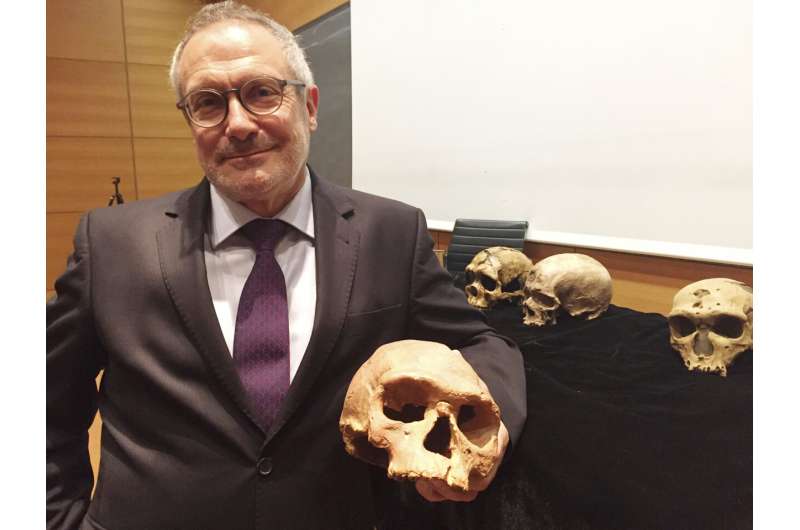This article has been reviewed according to Science X's editorial process and policies. Editors have highlighted the following attributes while ensuring the content's credibility:
fact-checked
reputable news agency
proofread
Balzan Prizes recognize achievements in study of human evolution, black holes with $840,000 awards

An American literary historian, a French paleoanthropologist, a Danish evolutionary geneticist and a German-Dutch astrophysicist have been named the winners of this year's Balzan Prize. Their work in the humanities and natural sciences advances the study of comparative literature, human evolution and black holes.
David Damrosch, chair of Harvard University's comparative literature department, was recognized for "his creative approach to world literature as a translational circulation of works that remain alive because they are embraced and changed,'' the Balzan Foundation said in its citation.
Frenchman Jean-Jacques Hublin of the Max-Planck-Institute for evolutionary anthropology in Leipzig was cited for his discoveries of the oldest Homo sapiens in Africa, contributing to the study of human evolution. The citation also praised his ability to synthesize data, organize scientific teams and his qualities as a teacher "and popularizer."
Also awarded for contributions to the study of human evolution, Eske Willerslev of the University of Copenhagen in Denmark was cited for studies of human DNA, focusing on population migrations to "transform our understanding of human history." The citation said he used ancient DNA from teeth to identify human pathogens and retrieved DNA from environmental samples "opening a new scientific field."

The final individual award went to Heino Falcke, an astrophysicist at Radboud University in the Netherlands, for his role in producing high-resolution images of what surrounds black holes as leader of the Event Horizon Telescope. The work validated "Einstein's General Relativity in situations where gravity is so strong that spacetime is significantly curved,'' the judges said.
The Balzan Foundation awards prizes in the sciences and humanities each year, rotating specialties to highlight new or emerging areas of research and sustain fields that might be overlooked elsewhere. Recipients receive 750,000 Swiss francs ($840,000), half of which must be used for research, preferably by young scholars or scientists.

This year, a special prize for humanity, peace and brotherhood among peoples was made to the Francesca Rava Foundation, an Italian organization that helps responds to humanitarian and natural disasters in Italy and Latin America. The prize, also worth 750,000 Swiss francs, is give out at intervals of at least three years.
The prizes will be awarded in Bern, Switzerland on Nov. 17.
© 2023 The Associated Press. All rights reserved. This material may not be published, broadcast, rewritten or redistributed without permission.





















